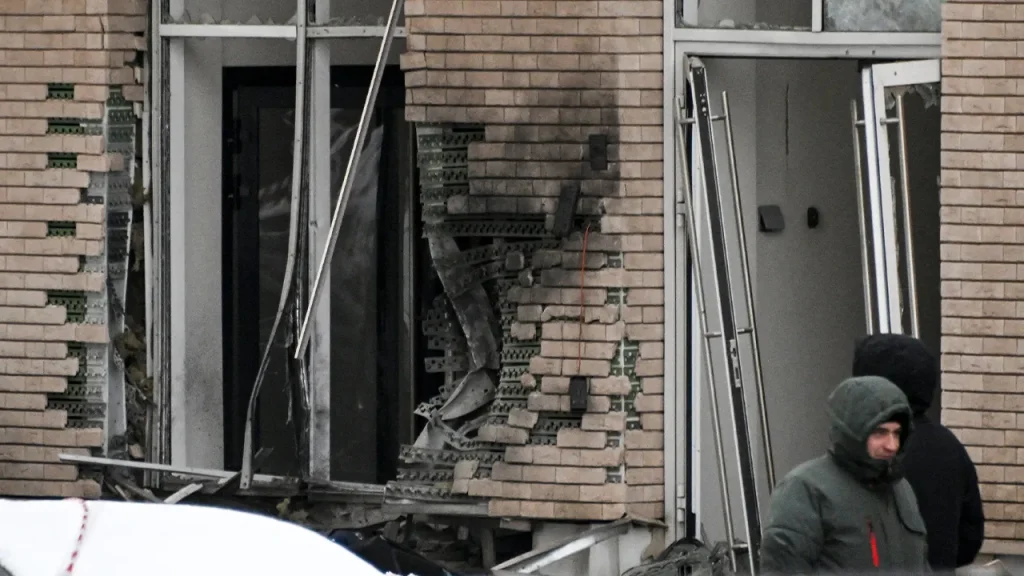The assassination of Lieutenant General Igor Kirillov, a high-ranking Russian military official, and his assistant, Major I.V. Polikarpov, has sent shockwaves through Moscow. The incident, a targeted explosion outside Kirillov’s residential building, has been attributed to a male Uzbekistani citizen born in 1995, currently in Russian custody. Russian authorities have identified the suspect as an operative recruited by Ukrainian special services, a claim corroborated by Ukraine’s subsequent acceptance of responsibility for the attack. This incident marks a significant escalation in the ongoing conflict between Russia and Ukraine, raising concerns about further retaliatory actions and the potential for heightened tensions between the two nations. The assassination’s intricate planning and execution, including the use of a remotely detonated explosive device concealed on an electric scooter and real-time surveillance via a Wi-Fi camera, underscore the sophisticated nature of the operation.
The Federal Security Service of the Russian Federation (FSB) has released details of the suspect’s alleged confession, outlining the meticulously planned operation. According to the FSB, the suspect, upon arriving in Moscow under instructions from Ukrainian intelligence, received a powerful improvised explosive device (IED). He then planted the IED on an electric scooter, strategically positioning it near the entrance of Kirillov’s residence. To maintain surveillance on Kirillov’s movements, the suspect rented a car through a car-sharing service and installed a Wi-Fi-enabled video camera inside the vehicle. This camera transmitted live footage to his handlers in Dnipro, Ukraine, providing real-time intelligence on Kirillov’s whereabouts, facilitating precise timing for the detonation. The suspect’s detailed confession, if accurate, paints a picture of a well-coordinated operation with clear logistical support and communication channels.
Ukraine’s acknowledgment of responsibility for the assassination has further inflamed the already tense relationship with Russia. While Ukrainian officials have not explicitly outlined their motives, the act can be interpreted as a strategic move to disrupt Russian military operations and potentially demoralize its ranks. Kirillov’s role within the Russian military hierarchy, while not fully disclosed, likely held significant importance, making him a high-value target for Ukrainian forces. The assassination represents a direct challenge to Russian security within its own borders and highlights the escalating nature of the conflict, pushing it beyond conventional battlefield engagements and into the realm of targeted assassinations.
The use of an Uzbekistani citizen as the alleged operative adds another layer of complexity to the situation. It raises questions about the extent of Ukrainian intelligence networks operating within the region and the potential involvement of other actors. Uzbekistan’s position in this complex geopolitical landscape will undoubtedly be scrutinized, as the incident could strain its relations with both Russia and Ukraine. The suspect’s motivation for participating in the operation remains unclear, requiring further investigation to determine whether it was driven by ideological conviction, financial incentives, or coercion. The involvement of a foreign national also raises concerns about the potential for similar operations being conducted in the future, potentially destabilizing the region further.
The assassination of General Kirillov has immediate and far-reaching implications for the ongoing conflict. Russia is likely to respond with a range of measures, potentially including increased military operations in Ukraine, intensified cyberattacks, and diplomatic pressure on countries perceived as supporting Ukraine. Furthermore, the incident could lead to a hardening of public opinion in Russia, fueling support for more aggressive actions against Ukraine. The targeting of a high-ranking military official within Russia’s capital signals a significant escalation in the conflict’s intensity, raising the specter of further retaliatory actions and potentially widening the scope of the conflict.
The international community will undoubtedly condemn the assassination, reiterating calls for de-escalation and a peaceful resolution to the conflict. However, the incident underscores the deep mistrust and animosity between Russia and Ukraine, making a negotiated settlement even more challenging to achieve. The involvement of an Uzbekistani citizen adds a regional dimension to the conflict, potentially drawing other countries into the fray. The international community will need to engage in concerted diplomatic efforts to prevent further escalation and address the underlying causes of the conflict, aiming to find a sustainable path towards peace and stability in the region. The assassination serves as a grim reminder of the human cost of the ongoing conflict and the urgent need for a diplomatic solution.

